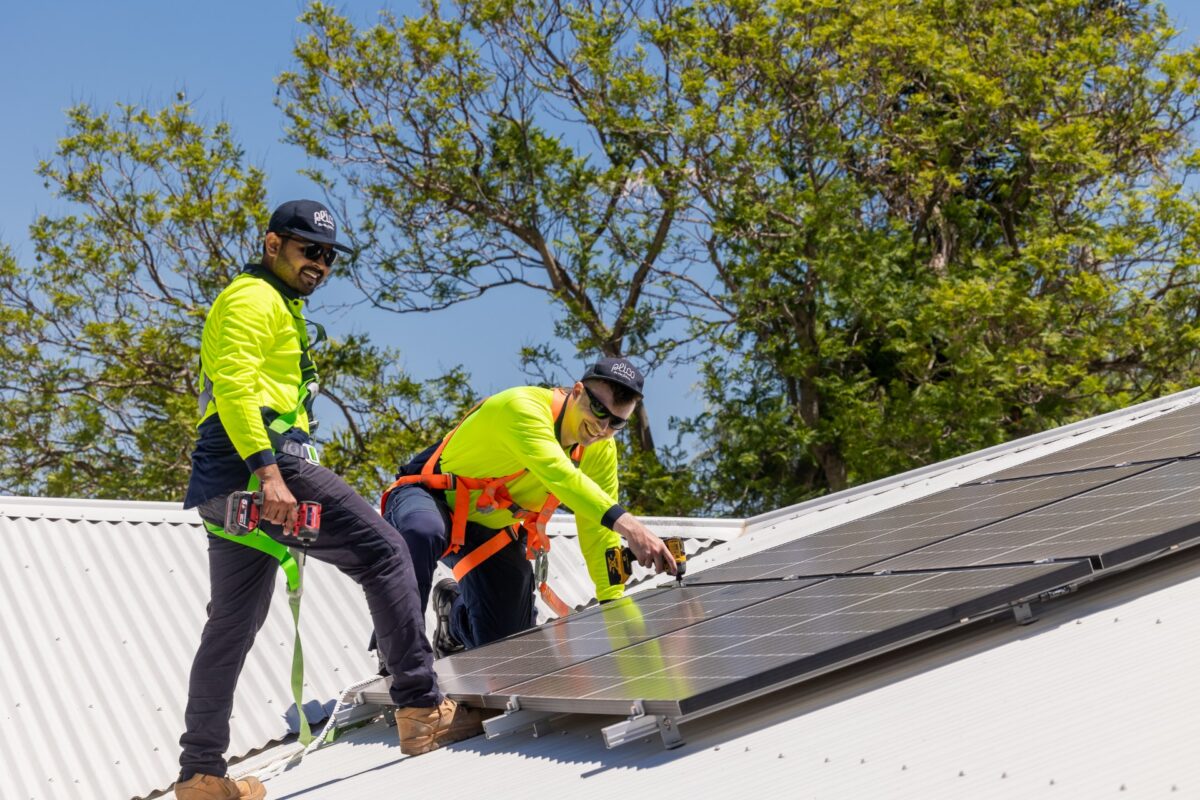It’s difficult to know who Australian households should trust when it comes to making a rooftop solar purchase. Selecting the right system size for present and, more importantly, future needs is a major challenge in itself. And throw in increasingly residential energy products like batteries and EV chargers complicates the matter further.
To assist households to make the right choice, the Australian federal government has produced a Solar Consumer Guide, which was released in late February. Renowned solar research institute the University of New South Wales (UNSW) was enlisted in the creation of the guide, which can be used in conjunction with the SunSPOT tool – from the Australian PV Institute (APVI).
UNSW senior research fellow and the recent director of the APVI Mike Roberts was involved with both projects and spoke with pv magazine about how the tools can help homeowners make smart solar decisions.
pv magazine: Why is a consumer guide for rooftop PV needed?
Mike Roberts: Australia’s got world leading residential solar, so one in three houses has solar. But that means that two out of three don’t, and apartments don’t, and a lot of renters don’t. So there’s still huge capacity yet to be fulfilled and also huge potential capacity on commercial rooftops. And I guess a lot of the easier roofs have been done. We’re moving into more difficult territory.
The economics of solar generally are pretty good. Most residential customers will pay their solar investment back in three-to-five years. But the detail is quite specific. It can be quite confusing for people.
The purpose of this site was really just to get as much information in one place from a trusted source. There’s also a lot of people throwing a lot of information around that doesn’t necessarily agree with each other. So, the guide is a one-stop-shop.

Photo: UNSW
pv magazine: Back in the day, and I’m talking about 10 years ago or so, the Australian market was was known as being something of a dumping ground for some low quality product. How different would you say it is today?
I’d say there’s still a range, but I’d say there’s a lot more good product. There are some installers who or not so much installers, but you know, sales companies who will just sell you whatever it is they’ve got to sell you.
I guess that’s one of the things that we tried to make sure the guide did was to kind of guide towards the people who are looking more specifically at what’s gonna work for the consumer.
We don’t recommend specific installers. But what we try and do is give users as much information so they can be discerning and they can they know the right questions to ask.
pv magazine: In the installation segment, as you mention, there are those different players – retailers who subcontract installation, and then installers who handle everything from an initial lead right through to final sign off. Do you see dangers in a business model that results in there being quite a disconnect for the customer between who they think they’re dealing with and who they’re actually inviting onto their roof?
They certainly can be, yes. It’s not necessarily a danger if it’s a reputable retailer. If it’s a reputable company, they’re likely to work with reputable installers. Very often if it’s a national or a statewide company, then it makes sense for them to sub installation to somebody more local to you.
But we one of the things that the Solar Consumer Guide says is ask that question: Who will be installing it?
pv magazine: Safety is, of course, a key concern. A few years ago we saw some rooftop fires in the US with some some larger, commercial, rooftop projects. In terms of rooftop solar and safety for homeowners, how safe is it in 2024?
It’s pretty safe. I’m not across the statistics, but I know that fires from PV are very rare. There were issues with some of the DC isolator switches and I haven’t heard any issues with that for quite a while. I think the I think the industry has upped to its game on that.
Really the only potential for fires is if it’s really badly installed these days. So again, going back to reputable installers is essential.
pv magazine: What is the key message for the for the consumer from the guide?
Make sure you know who you’re buying from and who’s installing it. And ask the right questions to make sure what you’re getting is suitable for you.
You know that they’re looking at your roof; they’re looking at your load profile; they’re looking at your financial situation and not just trying to sell you a generic product that they sell everybody. That’s where SunSPOT comes in as it will help you get the right system for you.
And the other thing I’d say is to think about the future. If you’re buying your solar system, it’s going last you at least 20 years, and in 20 years your energy use is gonna be very different to what it is now. What happens if I get an EV? What happens if I get a electric cook top? How’s that going to affect the optimum system size for me and the finances of it? I think people already should be starting to think about trying to future proof their home when they’re buying a system.
pv magazine: That makes metering data so important, doesn’t it?
At the moment, if you’re in Victoria, you’ve got a smart meter. If you’re anywhere else, you probably haven’t, unless you’ve already got solar. Once you get solar, you get a smart meter, which is great, but it would be great if you’ve got it a year before.
This content is protected by copyright and may not be reused. If you want to cooperate with us and would like to reuse some of our content, please contact: editors@pv-magazine.com.









By submitting this form you agree to pv magazine using your data for the purposes of publishing your comment.
Your personal data will only be disclosed or otherwise transmitted to third parties for the purposes of spam filtering or if this is necessary for technical maintenance of the website. Any other transfer to third parties will not take place unless this is justified on the basis of applicable data protection regulations or if pv magazine is legally obliged to do so.
You may revoke this consent at any time with effect for the future, in which case your personal data will be deleted immediately. Otherwise, your data will be deleted if pv magazine has processed your request or the purpose of data storage is fulfilled.
Further information on data privacy can be found in our Data Protection Policy.